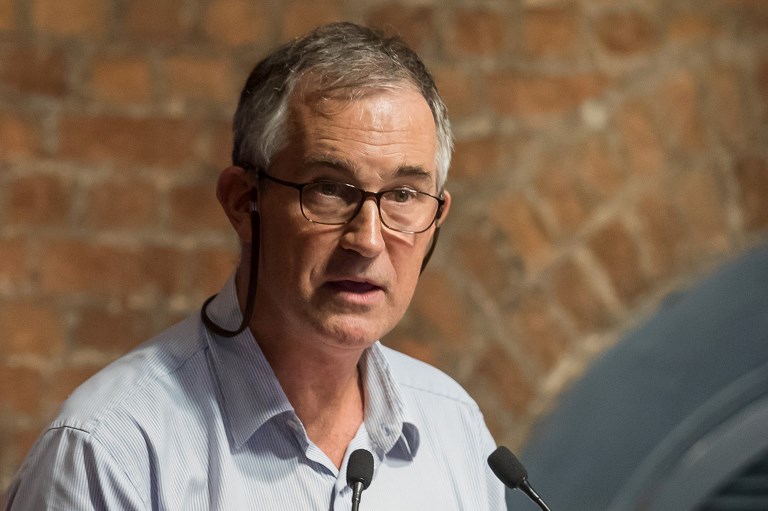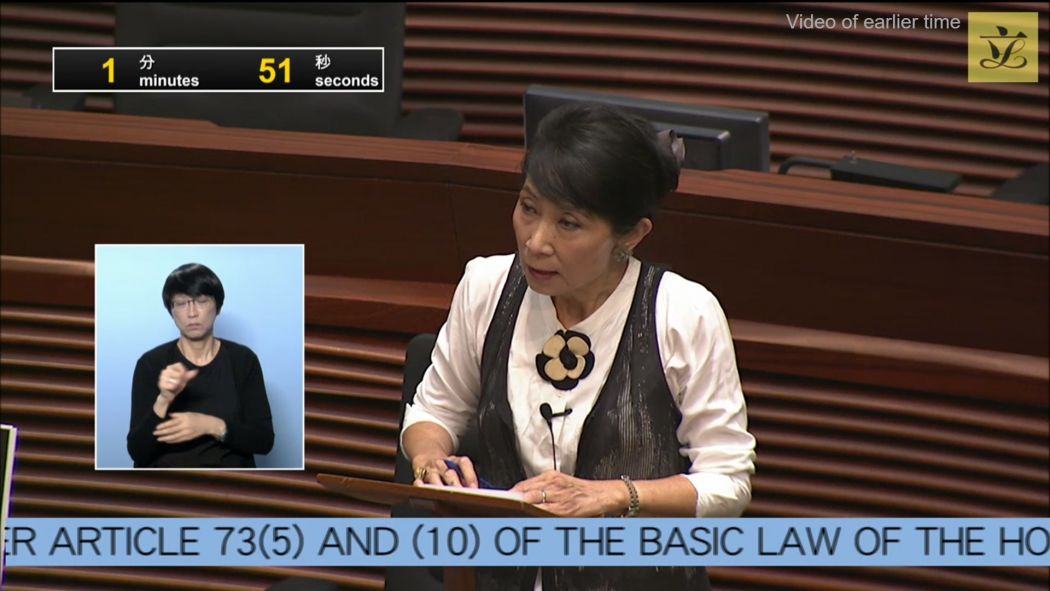Chief Executive Carrie Lam has told Japanese reporters that Hong Kong’s rule of law was “very robust,” as she faced a grilling on Thursday over the city’s expulsion of the Financial Times’ Asia News Editor Victor Mallet last month.
The Hong Kong government refused to renew a work visa for Mallet, also the vice-president of the Foreign Correspondents’ Club of Hong Kong, after he hosted a luncheon talk at the club with independence advocate Andy Chan. Mallet received only a seven-day tourist visa when he arrived in Hong Kong after an overseas trip, before he was forced to leave on October 12.
At a press conference in Tokyo during her official visit, three Japanese journalists asked about the Mallet case and freedoms in Hong Kong.

A journalist from TBS channel said that he was a correspondent in Hong Kong two decades ago and he was witnessing freedoms going backwards in the city: “My concern is that Hong Kong will just end up being just another Chinese city, rather than the very attractive and very charming city that I used to know.”
Lam said that people should look at the facts and the evidence: “In fact, we are really seeing very robust rule of law in Hong Kong, the independence of the Judiciary, as well as the freedoms and the rights enshrined under the Basic Law.”
“One of the facts and statistics that we have is Hong Kong hosts a large number of foreign media because of our freedom, because of our diversity,” she said, adding that there is a “very strong Japanese presence” amongst foreign correspondents in Hong Kong.
“I think this is a very good testimony of the continued enjoyment of the freedoms of press, of reporting, of gathering in Hong Kong,” she added.

Another journalist from Japan Times asked Lam to explain the reason behind the visa denial. But Lam said it was not appropriate to talk about individual cases in public, especially as she was set to hear an appeal on Mallet’s case.
A third journalist from TV Tokyo asked Lam if journalists will risk losing their visas if they interviewed independence supporters during next year’s anniversary of the Tiananmen Square crackdown.
Lam said: “The fact that so many overseas media, including Japanese media, have been using Hong Kong as a base for reporting is by itself a very good indication of the freedom of reporting, of journalism, in Hong Kong.”
Legco vote
Meanwhile on Thursday, the Legislative Council rejected a motion tabled by democrat Claudia Mo to summon officials to the legislature to explain the expulsion of Mallet. Pro-Beijing camp lawmakers cast “no” votes leading to the motion being scrapped.

Mo said the Mallet case proved Lam’s government was a “puppet government.”
“She’s so eager to please her boss up North,” Mo said. “Try what you may to attack free press and free speech. But free press and free speech are humanity, and humanity never dies.”
Democratic Party lawmaker Lam Cheuk-ting said that providing a venue for independence advocates did not mean Mallet supported independence.
“The Leisure and Cultural Services Department also lent its venue to the Hong Kong Alliance in Support of Patriotic Democratic Movements of China, which advocates an end to one-party dictatorship. Is the LCSD helping the Alliance promote an end to one-party dictatorship?” he asked.

Liberal Party lawmaker Shiu Ka-fai said the case was “not a suppression of press freedom.”
He said the Hong Kong government and the Chinese foreign ministry had been reminding Mallet not to host the talk: “He knew of this. All Hong Kong residents knew. The news was reported globally.”
Secretary for Security John Lee said the Director of Immigration would handle cases on the basis of fact and the actual situation, and no special treatment would be granted.
“Some lawmakers depicted the decision by the Director of Immigration – made in accordance with the laws and the immigration policy – as political suppression. This is incorrect,” he said.
